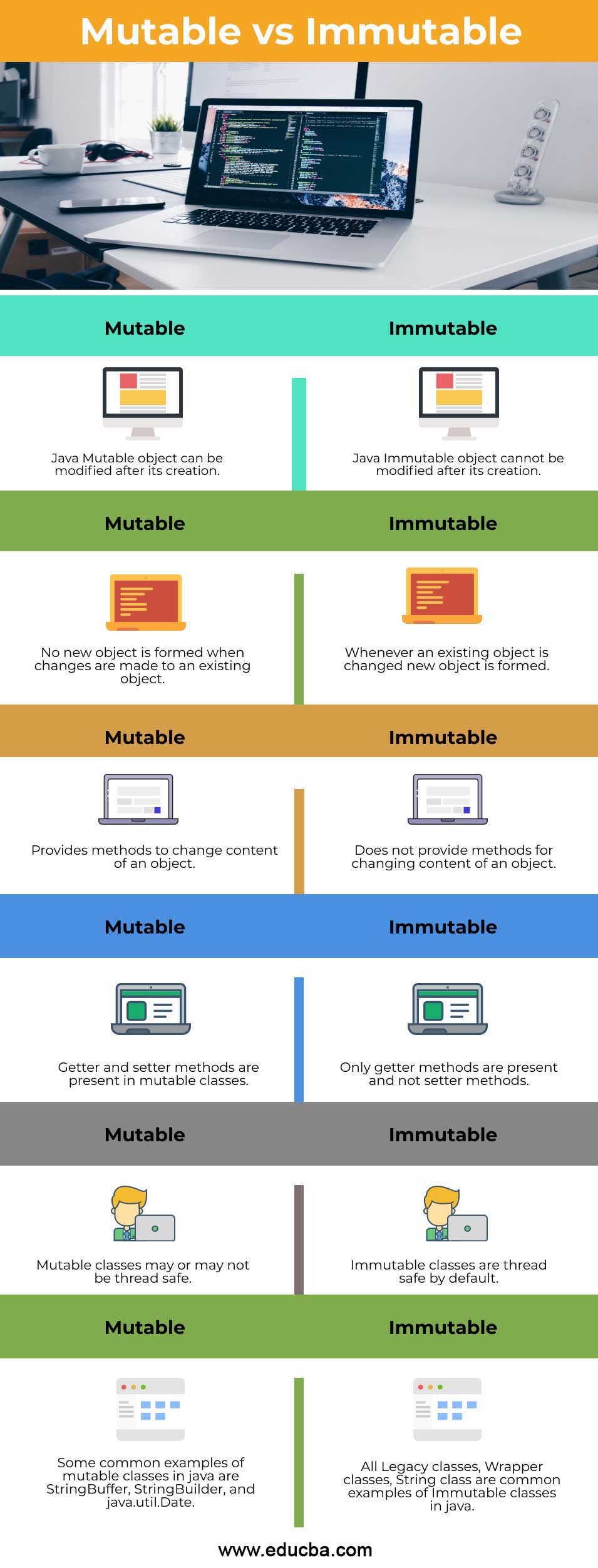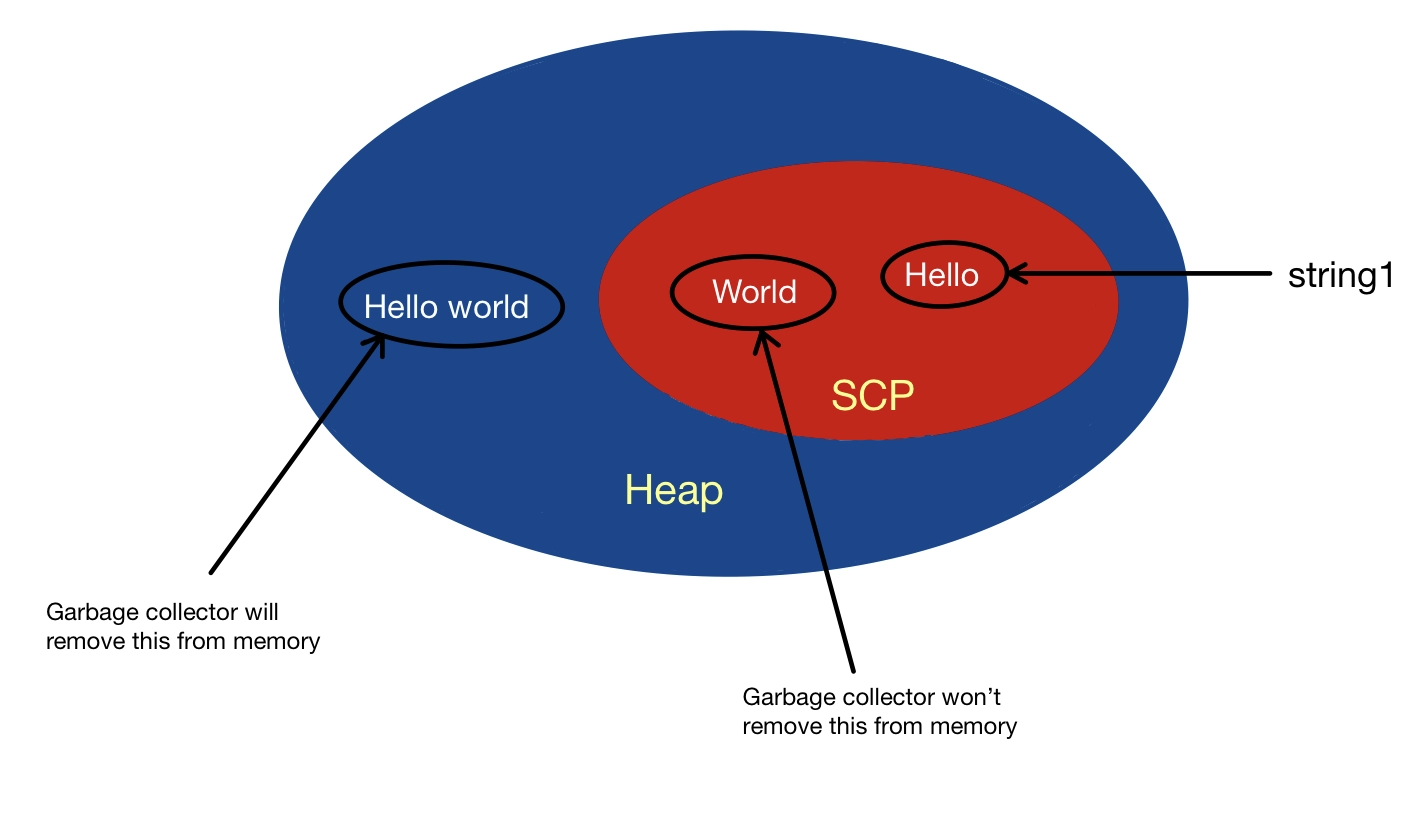Why Are Strings Immutable in Java? Comprehensive Guide for Beginners
Why Are Strings Immutable in Java? Comprehensive Guide for Beginners
Blog Article
The Evolution of Unalterable String Handling: A Vital Element of Software Advancement
In the elaborate realm of software advancement, the handling of immutable strings stands as a keystone that has actually undertaken substantial development over time. From its humble beginnings to the complex tests run into in early executions, the journey of unalterable string control has actually been a vital aspect of software engineering. As we browse with the historic landscape of this basic principle, tracing the innovations, safety and security ramifications, and emerging patterns, we discover ourselves at a point where the intrinsic worth of recognizing this development comes to be significantly apparent.
Beginnings of Unalterable Strings
The idea of immutable strings traces back to the early days of shows languages when developers sought to improve the reliability and security of data managing mechanisms. Unalterable strings describe strings that can not be altered after they are created. This basic principle was introduced to attend to worries relating to information integrity and avoid unintended modifications to vital information stored as strings.

Additionally, unalterable strings add to improving the total safety and security of software application systems (Why are strings immutable in Java?). By protecting against unauthorized celebrations from meddling with sensitive string information, unalterable strings help alleviate the danger of data breaches and unapproved accessibility to private information. This foundational idea remains to play an essential role in modern programs languages and stays a keystone of safe and secure and durable software advancement practices
Early Difficulties and Solutions
One of the main difficulties in dealing with immutable strings was taking care of memory effectively. Additionally, making certain that strings continued to be unchanged verified to be complex, specifically when multiple components of the codebase required to access and change data.
To attend to these obstacles, designers began carrying out data security strategies to secure sensitive details stored in unalterable strings. Security aided secure data from unauthorized access and adjustment. Additionally, the intro of hashing algorithms gave a way to verify the honesty of immutable strings by creating unique checksums based upon their components. If any type of alterations had actually taken place, these checksums allowed for quick contrasts to identify. By incorporating file encryption and hashing approaches into the handling of unalterable strings, programmers considerably improved the safety and security and dependability of data within software application systems.

Innovations in String Immutability
In software program growth, a significant development in the handling of immutable strings has arised via innovations in information file encryption and hashing techniques. By using safe and secure hash algorithms like SHA-256 or cryptographic techniques such as AES security, designers can guarantee that delicate info stored in unalterable strings stays secure and tamper-proof. These improvements have boosted the integrity and discretion of data within applications, particularly in markets where information protection is vital, such as medical care, cybersecurity, and financing.
Furthermore, innovations in string immutability have led the way for improved efficiency optimization. Unalterable strings allow for much more reliable memory management and caching methods, reducing the overhead connected with constant string manipulations (Why are strings immutable in Java?). This optimization not only enhances the total responsiveness of software program applications but likewise adds to far better scalability and resource application
Safety Effects and Best Practices
With the you can find out more foundation laid by developments in string immutability, understanding the protection implications and executing finest methods comes to be vital in protecting sensitive data within software application applications. Immutable strings play an important duty in enhancing safety and security by avoiding unauthorized adjustments to information, ensuring data honesty throughout the application's lifecycle. By making use of unalterable strings, programmers can alleviate common susceptabilities such as shot strikes, barrier overflows, and data tampering, which are typically made use of by malicious actors to endanger systems.
This consists of encrypting information at remainder and in transportation, applying proper accessibility controls, employing safe coding techniques, and regularly upgrading software components to patch recognized susceptabilities. By incorporating these safety procedures and ideal practices into software application growth processes, companies can much better protect their data possessions and lessen the risk of protection breaches and data leaks.
Future Trends in String Handling
In the middle of the ever-evolving landscape of software application development, the trajectory of string handling is poised to witness significant developments and advancements. One of the crucial future trends in string handling is the increasing focus on performance optimization. As software applications proceed to expand in complexity and range, the reliable handling of strings comes to be critical for keeping optimum performance. Developers are exploring brand-new algorithms and data frameworks to improve the rate and performance of string operations.
Moreover, one more trend imminent is the assimilation of expert system (AI) and artificial intelligence (ML) in string see page handling tasks. AI-powered tools are being established to automate and enhance various string adjustment processes, bring about raised efficiency and accuracy in software advancement workflows.
Additionally, there is a growing emphasis on boosting the safety aspects of string managing via advanced security techniques and secure coding methods. As cyber dangers remain to progress, ensuring the stability and discretion of information within strings is becoming a top concern for programmers. By adopting robust protection steps, such as encryption at remainder and in transit, designers can minimize the risks connected with string control vulnerabilities.
Verdict
In conclusion, the evolution of immutable string handling has actually been a crucial facet of software growth, beginning with its origins to the improvements made recently. Early challenges have been attended to through ingenious services, causing better published here protection practices in dealing with strings. It is essential for developers to remain upgraded on the most recent fads in string immutability to make sure the effectiveness and safety of their software applications.
Immutable strings refer to strings that can not be changed after they are developed. Why are strings immutable in Java?. By protecting against unapproved events from meddling with sensitive string information, immutable strings aid alleviate the danger of data violations and unapproved access to personal info. By integrating encryption and hashing approaches right into the handling of immutable strings, developers dramatically boosted the safety and security and reliability of data within software program systems
Immutable strings permit for a lot more effective memory management and caching approaches, lowering the overhead linked with frequent string manipulations. Unalterable strings play a critical role in improving protection by avoiding unapproved adjustments to information, guaranteeing information honesty throughout the application's lifecycle.
Report this page